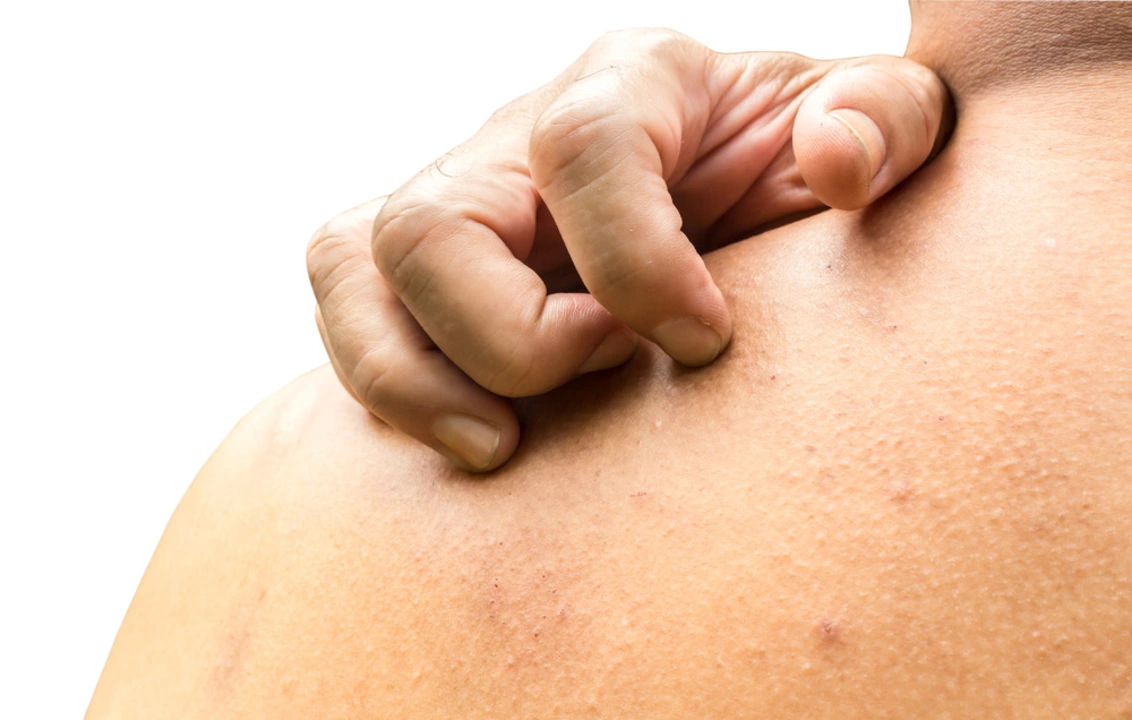Itching (Pruritus): What’s Causing It and What You Can Do Now
Itching is annoying and can wreck sleep, work, and patience. Sometimes it’s just dry skin. Other times it’s a sign of eczema, an allergic reaction, a medication side effect, or a problem inside the body. This page helps you figure out the likely cause, safe home fixes, which medicines work, and when to call a clinician.
Common causes and clues
Start by asking: is the itch local or all over? Local itching with redness, swelling, or blisters often means contact dermatitis, insect bite, or infection. Widespread itching without a rash can point to dry skin, medication side effects, liver or kidney problems, thyroid issues, or nerve-related itch (neuropathic pruritus).
Look for helpful clues: a new soap or lotion suggests contact allergy. Itchy patches on elbows, knees, or behind knees often fit eczema. Yellowing of the skin or dark urine with itch could mean liver trouble. If you recently started a new drug, that’s another red flag.
Quick home fixes and safe medicines
Small changes can stop most itches. Keep showers short and lukewarm. Use a gentle, fragrance-free cleanser and pat skin dry. Apply a thick, fragrance-free moisturizer while skin is slightly damp—this traps moisture. Wear loose cotton clothing and keep nails short to avoid breaks that invite infection.
For fast relief try cool compresses or an oatmeal bath. Over-the-counter options that help include non-sedating antihistamines (like cetirizine or loratadine) for allergy-driven itch. If itching is worse at night and you need to sleep, short-term diphenhydramine can help but causes drowsiness.
Topical 1% hydrocortisone cream reduces inflammation for small patches of dermatitis—use as directed and avoid long-term use on thin skin areas like the face unless a doctor advises it. For widespread or stubborn itch, prescription options include stronger topical steroids, topical calcineurin inhibitors, or certain oral medicines your doctor may suggest.
Neuropathic itch may respond to neuropathic agents such as gabapentin or certain antidepressants, but those need a prescriber and monitoring. If a medication you take causes itch, do not stop it on your own—talk to your prescriber about switching or adjusting therapy.
When to seek help: get urgent care for sudden swelling, breathing trouble, lightheadedness, or rapidly spreading rash—that could be a severe allergic reaction. Book a doctor visit if itching lasts more than two weeks, gets worse, shows signs of infection (pus, increasing pain, warmth), or comes with weight loss, jaundice, fever, or changes in bathroom habits. These could signal a systemic condition that needs testing.
If you’re unsure, take photos of the rash, note new products or drugs, and track when the itch is worst. That information helps your clinician find the cause faster and get you back to feeling normal.
Doxepin for Itching: A Relief for Chronic Pruritus Sufferers
As a chronic pruritus sufferer, I know firsthand how relentless itching can impact one's quality of life. Recently, I discovered that Doxepin, an antidepressant medication, can bring significant relief for itching. Studies have shown that Doxepin's antihistamine properties can help reduce itch intensity and improve sleep quality in patients. It's important to consult with your healthcare provider before starting any new medication, but I must say that Doxepin has been a game-changer for me. I'm grateful to have found a solution that allows me to live more comfortably and itch-free.
View More
